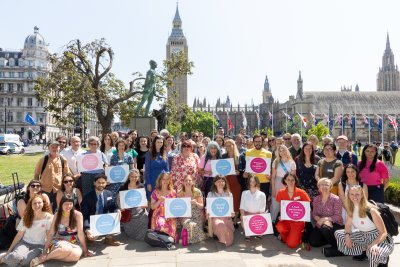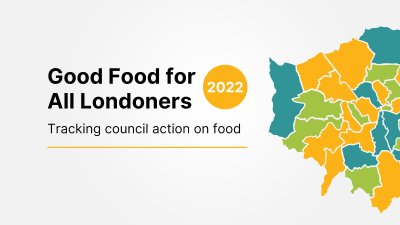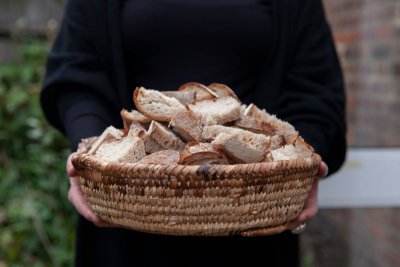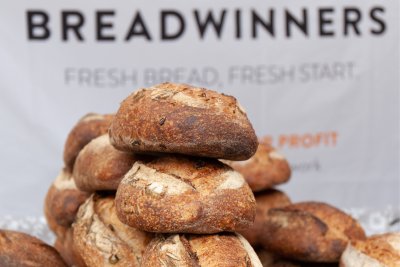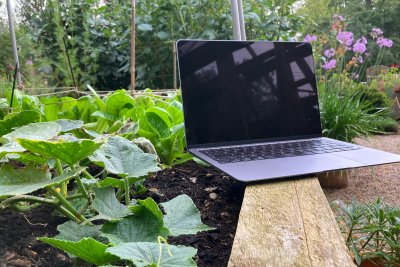London Councils show leadership on school food
The results of an annual survey of food initiatives supported by London Councils were published today by campaigning network London Food Link. The ‘Good Food For London’ report, supported by the Mayor of London and partner food and farming organisations, is now in its fifth year, measuring progress and encouraging local councils to take action on good food.
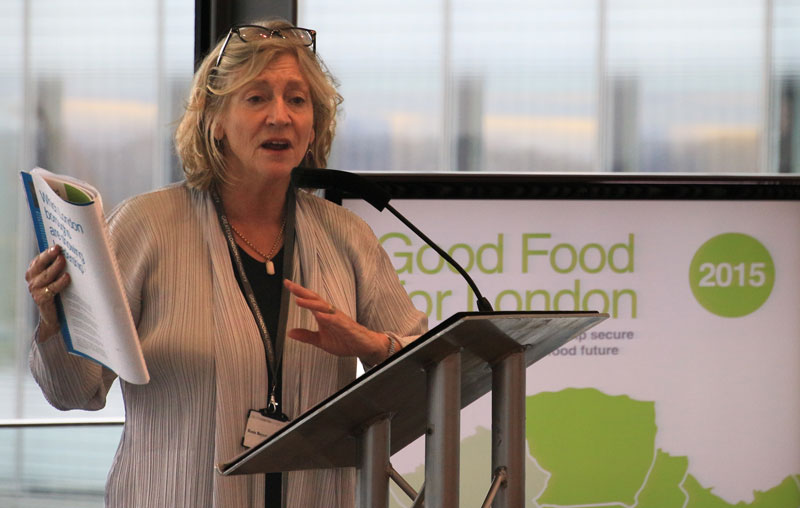
- 31 out of 33 London boroughs are doing more to improve the food available to their residents, workers and school pupils
- More London councils than ever are serving sustainable fish; higher welfare meat, eggs and dairy; Fairtrade products; and organic and freshly prepared food in schools
- Many are tackling food poverty by encouraging breastfeeding to ensure the best start in life for infants, and also paying the Living Wage to Council staff and contractors
- Increased support is being shown for food growing in the community and in schools.
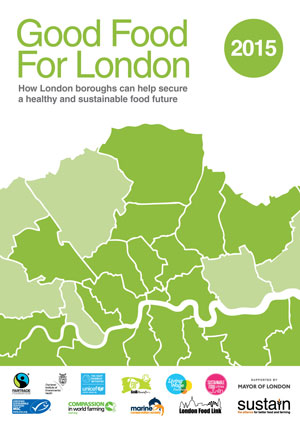 The results of an annual survey of food initiatives supported by London Councils were published today by campaigning network London Food Link. The ‘Good Food For London’ report [1], supported by the Mayor of London and partner food and farming organisations [2], is now in its fifth year, measuring progress and encouraging local councils to take action on good food.
The results of an annual survey of food initiatives supported by London Councils were published today by campaigning network London Food Link. The ‘Good Food For London’ report [1], supported by the Mayor of London and partner food and farming organisations [2], is now in its fifth year, measuring progress and encouraging local councils to take action on good food.
Rosie Boycott, chair of the London Food Board [3], said: “It is heartening to see so many of London’s councils taking action on good food initiatives. Our local authorities are very much on the front line when it comes to improving the diets of Londoners and while they are doing a fantastic job, I hope that they will continue to find new and innovative ways to tackle obesity and promote healthy eating.”
Despite the improvements, London continues to have higher rates of obesity compared to the rest of England, in part reflecting the proliferation of unhealthy food offers on our high streets. With new food ventures opening daily, many of which do not serve or promote healthy food and often located in poorer areas, people find themselves faced with an unhealthy food environment.
“Councils have great scope to influence the food served in their borough. While many are doing great work to improve school food, this is not the case the moment children step outside the school gates. We need more done to tackle the quality of high-street food”, explained Sofia Parente from London Food Link. The ‘Healthier Catering Commitment’ is a first step to help local authorities improve food in high-street takeaways, but despite its importance the report found sign-up to the scheme had slowed this year.
The Good Food for London league table 2015 is topped by the London Boroughs of Greenwich, Islington and Tower Hamlets. In addition, four boroughs were recognised for having been consistently in the top five since results started to be compiled in a league table two years ago: Camden, Islington, Lewisham and Tower Hamlets. Eight boroughs were also celebrated for being ‘most improved’, demonstrating change is possible even in a short period of time: Barking & Dagenham, City of London, Croydon, Greenwich, Hackney, Newham, Wandsworth and Westminster.
ENDS
For media enquiries, more information, images and maps, contact:
Sofia Parente
0203 5596 777 / 07947 125099
sofia@sustainweb.org
Notes to editors
- The Good Food for London 2015 report is published by London Food Link, an independent network of individuals, businesses and organisations working for better food in the capital, part of the charity Sustain.
- The report is supported by the Mayor of London and the following partner organisations: Unicef UK Baby Friendly Initiative, the Living Wage Foundation, the Chartered Institute of Environmental Health, the Soil Association’s Food for Life, Fairtrade London, the Marine Stewardship Council, the Marine Conservation Society, Compassion in World Farming, Food Growing Schools: London, Sustainable Food Cities and Sustain.
- The London Food Board is an advisory group of independent food policy organisations and experts that oversees the implementation of The Mayor’s Food Strategy: Healthy and Sustainable Food for London, published in 2006, and to co-ordinate work and lead the debate on healthy and sustainable food issues in the Capital. Rosie Boycott is chair of the London Food Board. See: www.london.gov.uk/priorities/business-economy/working-in-partnership/london-food-board/london-food-board
The ten key food issues surveyed in the Good Food for London report are:
- UNICEF UK Baby Friendly Initiative: The initiative recognises services that support mothers who have chosen to breastfeed, to do so for as long as they wish, and encourage all mothers regardless of feeding method to develop close and loving relationships with their babies. Implementing the Baby Friendly standards will help to ensure good quality support is available, across the community, for all mothers and babies. 19 of London’s 33 boroughs are engaged with the programme, with eight of the boroughs’ health visiting services having achieved full Baby Friendly accreditation. See: http://www.unicef.org.uk/babyfriendly/health-professionals/infant-feeding-networks/england/
- Community food growing: London Borough commitment to the Capital Growth campaign, support for community food growing in local plans and Food Growing Schools: London. 24 boroughs have signed up to Capital Growth and 18 recognise the importance of food growing within local planning policy. 24 boroughs are encouraging food growing in schools and have signed up to Food Growing Schools: London. 15 boroughs achieved the top mark by being involved in all three core initiatives. See: www.capitalgrowth.org www.foodgrowingschools.org/
- The London Living Wage: The Living Wage Foundation believes that work should be the surest way out of poverty; this can only be achieved when wages reflect the basic cost of living in London. Food poverty is the symptom of a number of contributing factors, financial access being an important element. Paying the Living Wage and promoting that employers within the borough do likewise is an important way of tackling the issue. 12 London boroughs are accredited Living Wage employers. See: www.livingwage.org.uk
- Fairtrade food: Fairtrade guarantees a better income for food producers in poor countries. London Boroughs can buy and promote Fairtrade food, to help tackle global poverty, and 24 out of London’s 33 Boroughs now have Fairtrade status, however 6 are overdue in renewing their Fairtrade status. See: www.fairtradelondon.org.uk
- Food for Life Catering Mark: The Food for Life Catering Mark works with caterers to improve food standards, and in 2015, 11 boroughs have achieved at least Silver and seven have achieved Gold Catering Mark for the majority of their schools. In addition, four boroughs have extended the Food for Life Catering Mark to early years settings. See: www.sacert.org/catering
- Good fish: 22 out of 33 boroughs are taking at least one significant step to help save marine life and ocean ecosystems. 9 local authorities have scored top marks. A significant step includes signing the Sustainable Fish Cities pledge on behalf of primary schools, secondary schools and other council catering services. The pledge commits boroughs to developing and implementing a simple sustainable fish policy, which includes serving MSC Certified fish, and/or fish from the MCS Fish to Eat list wherever possible. See: www.sustainablefishcities.net
- Good Farm Animal Welfare Awards: Run by Compassion in World Farming, these awards celebrate commitments by food companies and local authorities to buying higher welfare eggs, meat and dairy produce. 19 Boroughs have a Good Egg Award. In addition to receiving a Good Egg Award, Islington and Greenwich received a Good Chicken Award, and Enfield and Greenwich received a Good Dairy Commendation. See: www.compassioninfoodbusiness.com/awards
- Healthier Catering Commitment: This is a partnership project between environmental health teams in London boroughs with support from public health colleagues, the Association of London Environmental Health Managers (ALEHM), the London Food Board and the Chartered Institute of Environmental Health (CIEH). It offers practical advice to food outlets to make food healthier. 21 London Boroughs participate in the commitment or a similar project. See: www.cieh.org/healthier-cateringcommitment
- Local food partnerships: These are partnerships where public agencies, NGOs, businesses and communities are taking a joined up approach to food issues within a borough, making healthy and sustainable food a defining characteristic of where they live. 8 boroughs have an established partnership with the involvement of the local authority, a further ten boroughs are undertaking initial consultations. See: http://sustainablefoodcities.org
- Changing food culture in schools: this measure illustrates and commends support for holistic approaches to improve food culture in primary and secondary schools. This is done by promoting healthy eating of local and sustainable food amongst children and their families. Action is measured in terms of investment in and uptake of two programmes: Healthy Schools London programme and the Food for Life programme. Only two boroughs have a high proportion of schools making good progress in both programmes (Camden and Islington). See www.foodforlife.org.uk and www.healthyschoolslondon.org.uk
London Boroughs were assessed for their involvement in the ten good food measures listed above and what they have achieved through their participation to improve London’s food.
Published Friday 18 December 2015
London Food Link: London Food Link brings together community food enterprises and projects that are working to make good food accessible to everyone in London to help create a healthy, sustainable and ethical food system for all.
